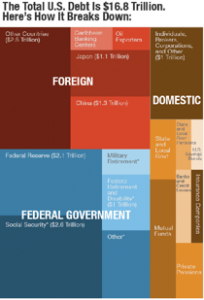 Coming up with innovative products and services is no simple task for companies to accomplish. After all, most new item that businesses roll out takes years of research and development, a costly investment that’s not guaranteed to succeed. In order to avoid R&D burnout, many companies have held competitions in the hopes of finding a great idea from outside the organization. And according to a new MIT study, this might just be the most efficient way for companies to innovate. Continue reading
Coming up with innovative products and services is no simple task for companies to accomplish. After all, most new item that businesses roll out takes years of research and development, a costly investment that’s not guaranteed to succeed. In order to avoid R&D burnout, many companies have held competitions in the hopes of finding a great idea from outside the organization. And according to a new MIT study, this might just be the most efficient way for companies to innovate. Continue reading







